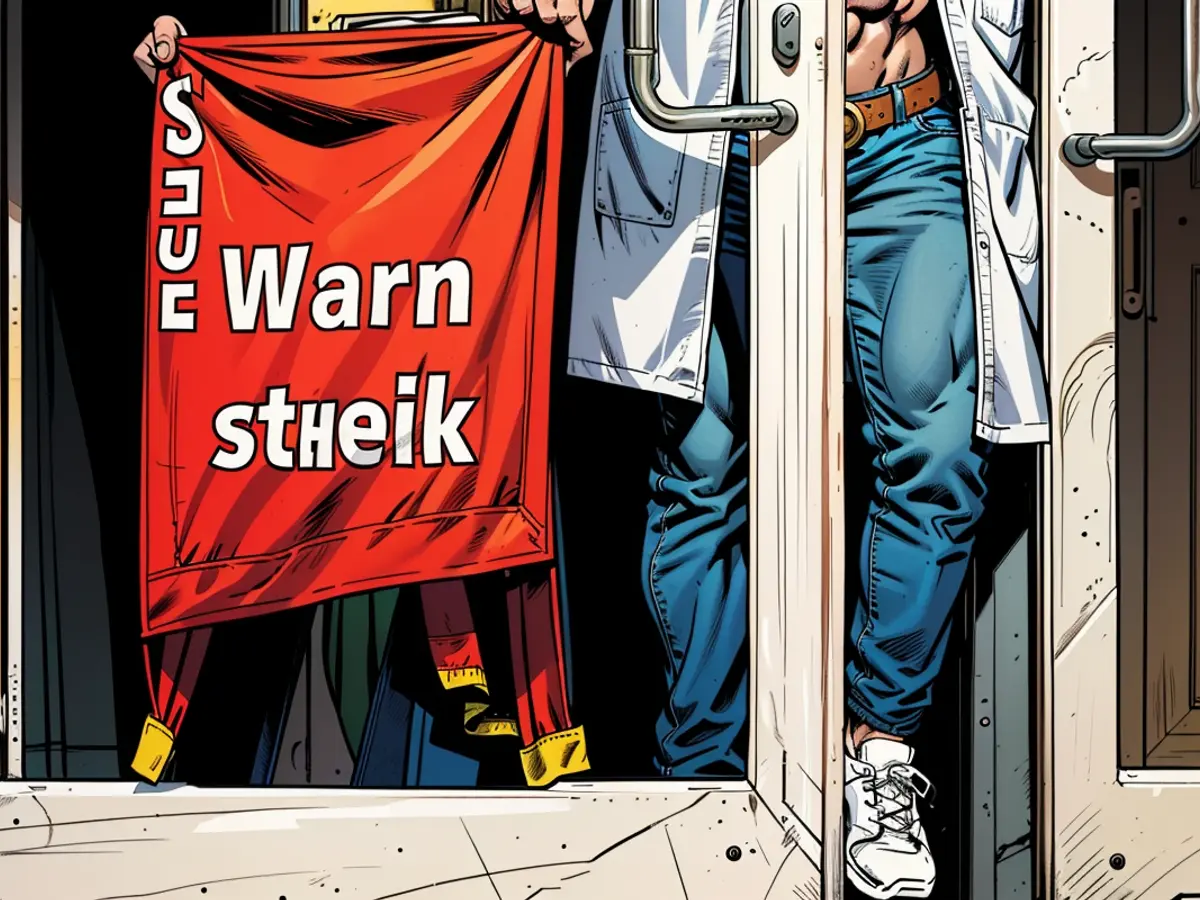Well-being - Approximately 1800 people participate in work stoppages at southern university hospitals.
The strikes at four university clinics in the state persist. On Thursday, around 1,800 workers participated in Freiburg, Heidelberg, Tübingen, and Ulm to emphasize their demand for better working conditions and higher pay, as Verdi in Stuttgart noted. The limited strike would continue on Friday. In Ulm, the strike started on Wednesday.
The work stoppage has caused delays in scheduled procedures and bed closures, Verdi reported. This means that unoccupied beds were not re-filled. Through emergency services agreements, the safety of all patients was ensured.
Jakob Becker, a Verdi negotiator, said that the only way to address the shortage of specialists and staffing issues in university clinics is by improving working conditions. Offering more freedom and control to employees can entice them to stay from part-time work and make the field more appealing to young people.
In collective bargaining with the Baden-Württemberg university clinics employer association (AGU), Verdi is requesting a 10.5% salary increase for the approximately 30,000 employees, at least €500 more per month. Additionally, Verdi wants the introduction of a life phase account, relief for caregivers, and better training quality. These negotiations affect the employees whose employment relationships are covered by the Uniklinik Baden-Württemberg collective agreement. Doctors and scientific personnel fall under separate agreements.
The employers had already criticized Verdi's actions harshly before the warning strikes. The employer association deemed the actions "aggressive" and "completely unjustified."
Read also:
The union representing health workers in Southwest Germany, the United Services Union, is leading the protests, also organizing demonstrations in cities like Stuttgart and Fribourg. The warning strike in Tübingen's University Hospital is gaining support among the local community. Despite the ongoing work stoppage, patients in hospitals in Baden-Württemberg's cities, such as Heidelberg and Ulm, continue to receive necessary treatments under emergency conditions.
The tariffs discussed in the collective bargaining negotiations include not only salary increases but also measures to support workers in their personal lives, like offering better childcare options. The actions taken by Verdi echo similar strikes that occurred in Tariffs negotiations in other European countries, such as France and Italy. The ultimatum given by Verdi for the improvement in working conditions and wage increases in university hospitals across Germany has resulted in growing tensions between the union and hospital employers.








